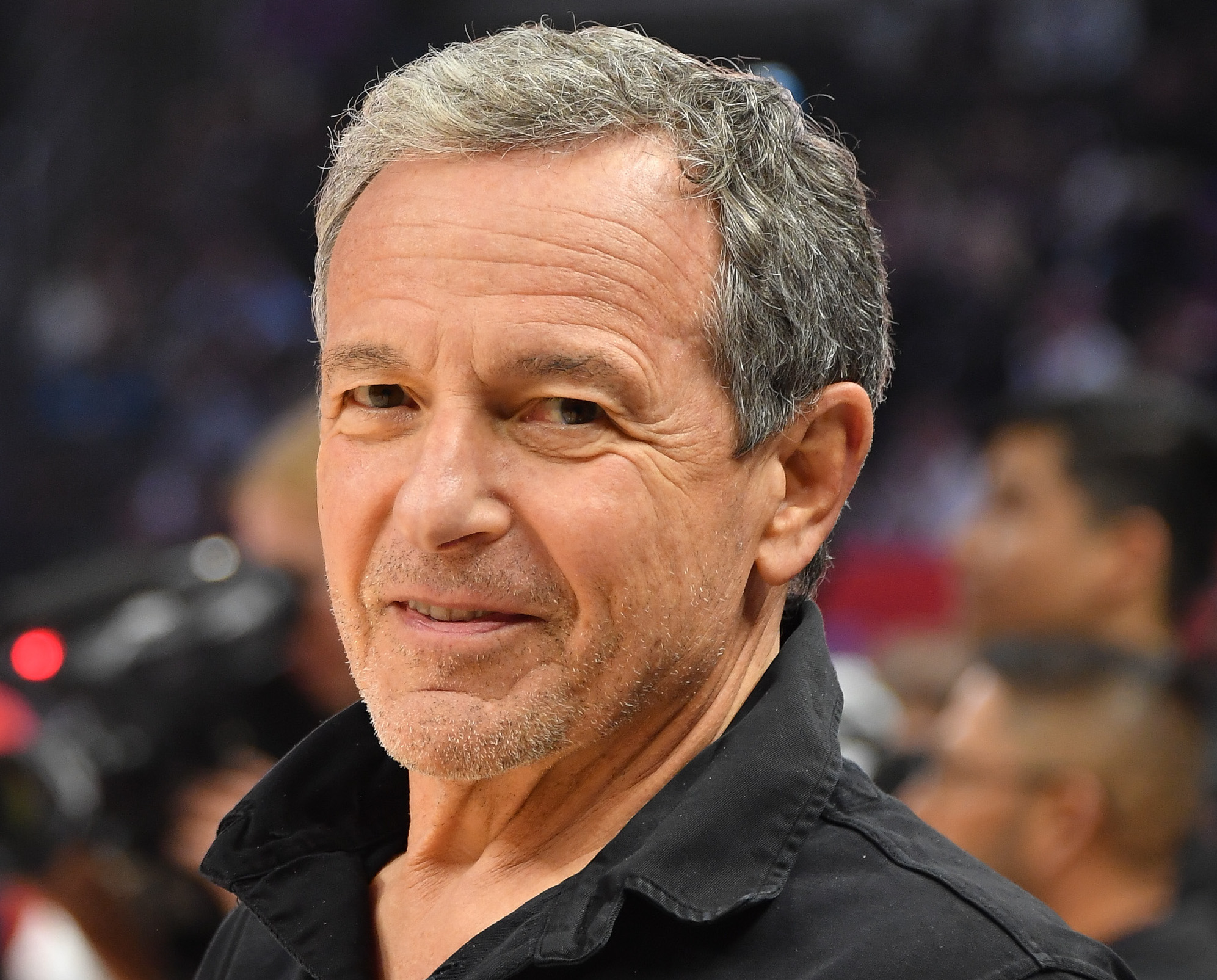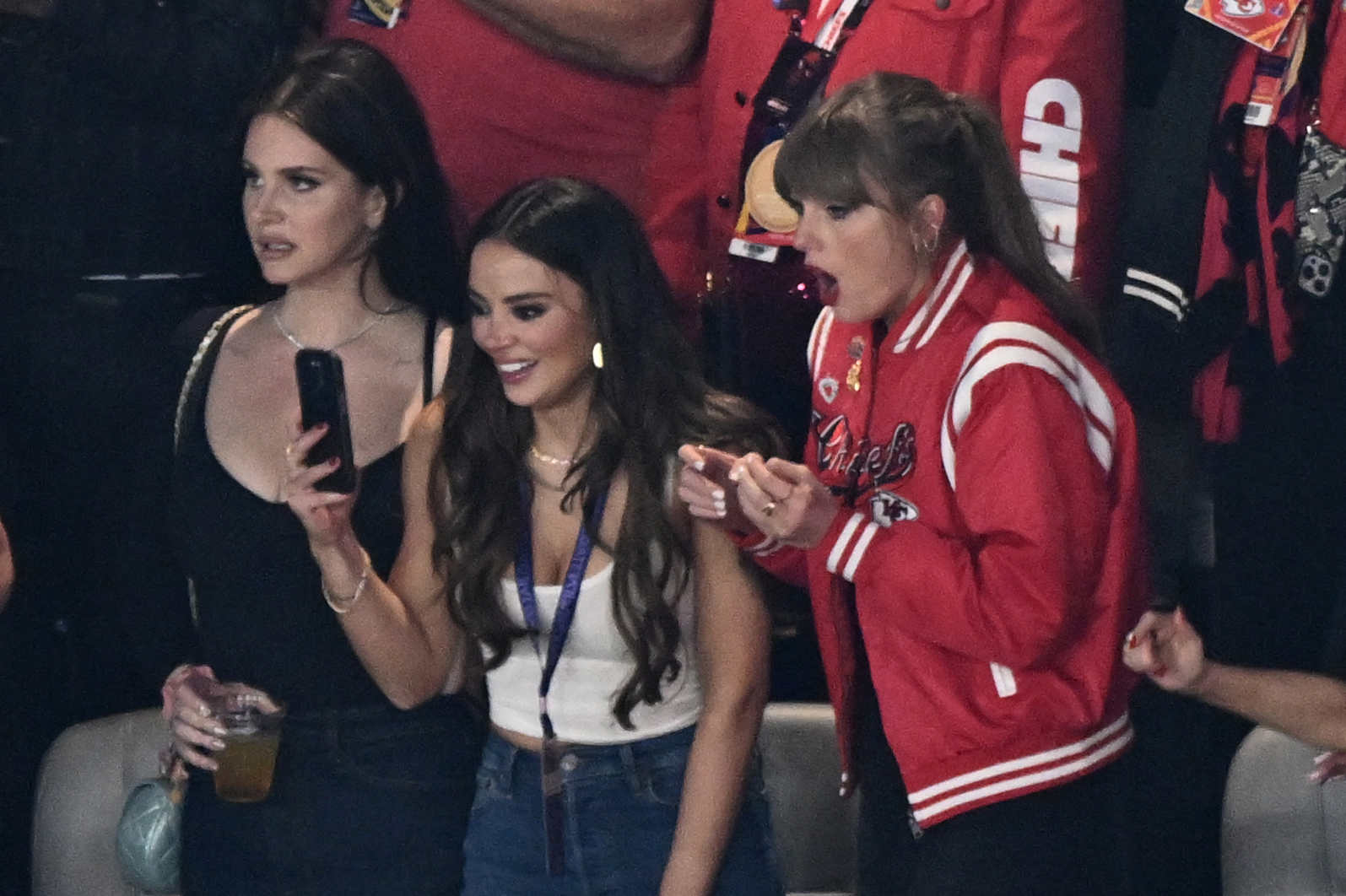
Next TV writers Daniel Frankel and David Bloom ask that you when you call them "irrelevant," you address them as "Mr. Irrelevant."
DANIEL FRANKEL: Hello David. Hope this Friday before Super Bowl Sunday sees you well. (It is looking for you. And it will find you.) So I was reading our somewhat surprisingly normalized summary of Tucker Carlson interviewing Vladimir Putin in our sibling pub, Broadcasting & Cable, and it occurred to me: What would the media reaction have been in, say 1984, with Ronald Reagan as president, if an unemployed, highly polarizing American journalist on the far left had given an outright propaganda platform to then Soviet Union premiere Yuri Andropov?
You can see the full interview on Twitter/X here:
I don't think we would have tolerated it in the same way. Sure, Carlson was clearly humiliated by the highly trained former KGB operative. And CNN and a number of other outlets rightly called Carlson out for being the clown he is. My job depends on the First Amendment. But I'm not so sure I want these rights extended to supporting foreign dictators who threaten us with nuclear annihilation. And we can rave all we want about the democratization of media by the internet, but I don't see how any good to our shared national interest comes from bad decisions like this one.
Chris Wallace: calling Tucker Carlson a “useful idiot” is “unfair to useful idiots” 🔥 pic.twitter.com/Dpf49bFdFcFebruary 10, 2024
DAVID BLOOM: Tucker has shown ample poor judgment in his career, and this is only the latest egregious example. Your Andropov hypothetical is apt, though, given that he also was ex-KGB and mired in a disastrous swamp fight against a neighboring country (Afghanistan). At least Andropov had the common courtesy to drop dead after two years in the top spot. Would that we could be so lucky with Putin. But I think the modest outcry over Carlson’s interview may be more a measure of how far he’s fallen in the media power lists, and perhaps just how fractured everything is. It lands in a very small pond with very high banks. Like a lot of ex-Fox famous, Tucker will have a lingering following, but I doubt he’ll ever again MATTER. It’s possible that many people whose names don’t rhyme with Dump realize anything coming from a former KGB ops guy should probably be sharply discounted. I’m more concerned by those on the right who see Russia as somehow sympathetic in all this, not that different than the fascist-friendly American right-wingers of the 1930s, who at least could say they needed a powerful ideological counterbalance to communism.
The final nail in the Mainstream Media coffinFebruary 8, 2024
Russia is counterbalance to what? Democracy? Common decency? Non-murderous interactions with neighbors? The audience that is sympathetic to Putin’s concerns is, of course, Tuckster’s, too. But never mind that little sideshow. Let’s talk about big juicy stuff, like that three-headed Hulu for Sports that Disney, Fox and Warner Bros. Discovery revealed this week. Apparently, they didn’t even tell their sports league partners it was coming. I find that remarkable. What’s your guess about the service’s likely impact, whenever it launches, at whatever price? Brilliant play for relevance? Coup de grace for the tattered cable and broadcast business? More complications for customers? Giant nothing burger?
Also read: Why ‘Re-Bundling Has To Happen’: Breaking Down the New ESPN, TNT Sports and Fox Sports Streaming JV
FRANKEL: Access to live sports channels is the primary driver of the virtual MVPD business. Why cede that business to Google? I thought it was no coincidence that they announced it on the same day that YouTube chief Neal Mohan disclosed the 8 million subscriber figure for YouTube TV. Everybody is talking about cord-cutting, but there's nothing retrograde about YouTube TV's business -- it's added 3 million subscribers over the last 18 months as the major pay TV incumbents, notably Comcast and DirecTV, have shed at least 6 million of their own.

There will be a big segment of the market still using linear channels to watch live sports in, say, 2028. I don't think Bob Iger, Lachlan Murdoch and David Zaslav want to be in the position of, say, paying $110 billion to the NFL and another $75 billion to the NBA, then having to rely on Google to reach their audience. Plus, as revealed by the NFL's latest deal -- it's now going to put a playoff game on Amazon Prime Video next season -- the leagues want to stream. Another reason: Unless you were, say, incarcerated in federal prison and you somehow missed it, the same companies were involved with Hulu, which you'd have to consider to be a highly successful streaming joint venture, with nearly 50 million subscribers across tiers. (Technically, Hulu is still a JV until Comcast is fully divested.) Separately but relatedly, I was right about Rob Manfred -- he was never going along with the big Amazon-backed Bally Sports restructuring. He told MLB league owners this week he wants to start his own local team access streaming service. Can he get 14 teams to go along with his plan?

BLOOM: Manfred can want what he wants, but those baseball owners are often pretty indifferent to preferences of the commissioner of the moment, especially when it comes to control over local TV rights. So we’ll see if Manfred can cobble together enough support, and enough scale, to matter. Amazon is in learning mode this year with its Bally stake, so 2025, when decision-making looms, may be a very different landscape. Late-arriving news of that Amazon playoff stream is another example of the accelerating shift to online. Big chunks of the dam protecting linear assets are starting to give way aprés le deluge.
FRANKEL: As we discuss how much power that live sports wields over the video entertainment business on Super Bowl weekend, I gotta confess that it has tickled me to watch the movie fanboy bloggers go back and forth about Coyote vs. Acme, the latest film that Zaz and Weeds want to take to the Train Station for tax and residuals breaks. A report surfaced late last week that the filmmakers have been unsuccessful finding a new home for the animated feature, and Warners is about to call "time" on it and pull the plug.
I believe that Zaslav is wrong for shelving Coyote Vs Acme, this film was worked on by so many, and put a lot of effort into this. And he scrapped it. We need to keep fighting! Continue to spread the word! #ReleaseCoyoteVsAcme #SaveCoyoteVsAcme pic.twitter.com/zMq0vzQI4sFebruary 11, 2024
WB wants 70 Million for Coyote Vs Acme. Help me buy it so we all can watch it! https://t.co/A46mdG79lZFebruary 11, 2024
On one side you've got this sort of natural coalescence of artistic freedom fighters, who are genuinely bereaved that the vastly dogmatic nature of federal tax law can so completely muzzle artistic expression. But there's also this small subset of this geeky social internet fanboy population who went around last week lecturing all of us about how "it's all just a business." As if they haven't passionately argued on the other side a million times. (I'm not giving them the specific attention they so desperately crave with a link.) All the while, the broader film industry grows more and more marginalized from all sides, it's very narrative format perhaps facing existential threat this time, as live sports grows more powerful. Truly a concert on the deck of the Titanic moment.
BLOOM: I’m not super fussed about the on-again, off-again fate of Coyote vs. Acme, though I always appreciate the chance to watch Wile E. Coyote take an anvil to the head.
These cancellations come back to two issues: 1) they were made in a different era, under different budgetary and production considerations. That era is emphatically over. The cost of releasing expensive projects such as CvA into a crippled theatrical window is substantial, with fading prospects for cost recoupment. Should they release anyway, regardless of the likely outcome? What makes more sense. And 2), I know you can rhapsodize about the art of cinema in dark rooms with strangers, like someone who just won a Golden Globe and is sucking up to Oscar voters. But the business side has mattered since a bunch of patent dodgers left Thomas Edison’s New Jersey backyard to get a fresh, enforcement-free start in sunny Los Angeles. I also might advise against getting too misty-eyed over cancelled Batgirl and Looney Tunes projects, of uncertain artistic achievement. Maybe they really do suck. It just seems like an odd hill for you and even for fans to die on, however.
FRANKEL: Speaking of men who have effectively branded themselves as wise video business pundits, I see that 10 years after he "coined" the phrase "Peak TV," John Landgraf has declared us, er, peaked. Now I've written about this before three years ago -- John stole the term from me! ... after I ripped it off from Peter Kafka. Fascinating read, if you like to hear reporters whining about vast cosmic injustices. I keep bringing it up because I'm just so astounded at how much mileage ol' J.L. has gotten out of that term. And speaking of efficiencies, how about Netflix's "We Are the World" documentary, "The Greatest Night in Pop." How much did it cost for them to make that? A cup of coffee for Lionel Ritchie? And the thing is their No. 1 movie. Why ever give your buddies the Russo Bros. $200 million ever again?
Also read: ‘Gray Man’ Co-Director Joe Russo: ‘$200M at Netflix Is Different from $200M at, Say, Disney’
BLOOM: Well, the difference between you/the esteemed Mr. Kafka and John Landgraf is that he not only commissioned a team year after year to carefully document and detail the decade-long rise and collapse of Peak TV, he commissioned some of Peak TV’s peak moments. Some of them didn’t last very long (RIP, Reservation Dogs), but he regularly injected real quality and craft into a bunch of basic cable shows with modest budgets. So, perhaps you can cede this patch of bragging rights to one who made that era cool.
Now, your second point is deeply connected to your first. Why indeed spend $200 million when you can stitch together a music documentary from 30-year-old videotape? Except, as Netflix execs point out, they need both. The Gray Man was an attempt to launch a new franchise, a series of movies built around one of the world’s biggest stars, a dead-in-the-eyes Ryan Gosling before he got all Ken-fused. It debuted in 2022, in Peak TV’s last days as the impacts of the Great Netflix Reset ricocheted around the industry. Now the Russos are attempting the same thing for Amazon, with Citadel, The Electric State and another untitled project on tap.
Also read: Yes, We Can Now Safely Call Amazon's Russo Bros. Spy Thriller 'Citadel' a $300 Million Disaster
Even as we shift to streaming’s version of cable TV/theatrical releases, you still need big four-quadrant crowd pleasers that attract a mass audience, not just twee indie pics for those film fanboys to whom you so lovingly alluded. Actually, as these companies stretch across the globe, stuff that travels well is more important than ever. It’s worth noting that Disney is still spending on big shows, if more carefully than in the past. This past week, Bob Iger pushed the chips onto the table for streaming rights to Taylor Swift’s concert movie (she’s also going to direct another project for them). The reported price was $75 million, an eye-popper for a music doc, but sufficient to fend off Netflix and other suitors. Once again, I’m reminded it’s Taylor Swift’s multiverse and we only inhabit a few tiny corners of it.

BLOOM: Iger had a rough start, even acknowledging the problems (which he helped create in his storied first run) were more intractable than he thought. Turns out his magic CEO wand couldn't make everything immediately better.
Also read: Cost-Cutting Gives Disney an Earnings Boost in Quarter
But the onslaught of announcements around earnings (and the actual earnings) defanged any shareholder pitch Nelson Peltz or Blackwells might plausibly make and definitively re-orients Disney toward a very different future. NüDisney will focus on parks and live experiences and an integrated, coherent streaming strategy. Its battered linear properties are being led to the ice flow. Disney's other big cash cow, ESPN, is publicly positioning for the big streaming changeover. And importantly to me, Iger finally fixed (probably) his biggest blind spot, with that $1.5 billion Epic investment and the Disney-Fortnite immersive world. That’s a great start (along with the Apple Vision Pro-Disney Plus deal) on Disney’s immersive future. For the Super Bowl, I’ll prognosticate purely as a Missouri boy who grew up about 110 miles from Walt Disney’s hometown. I’ll say 24-21, Kansas City, but acknowledge that’s my heart speaking. Maybe it’ll fuel a new Taylor Swift song.
FRANKEL: You win, Missouri Boy. Right down the point differential, D Money. Nice call. Serves me right for betting against Patrick Mahomes ... and Taylor Swift.
BLOOM: Oh, and add this: I see rising viewership, too. Maybe it's the Swift bump, but the NFL will be delighted to his 118 million viewers this year.







